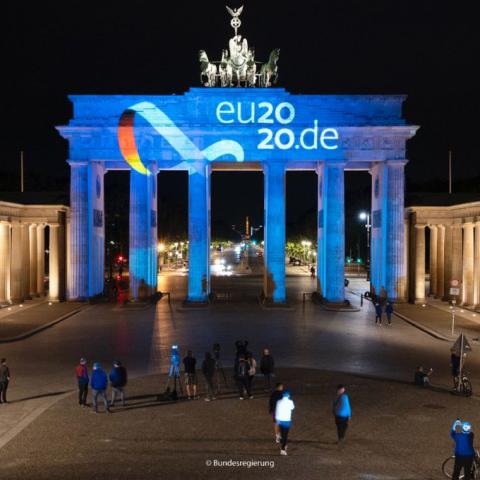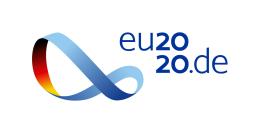European Economic
and Social Committee
German Presidency, the window of Renaissance that the EU needs
Today starts the German Presidency of the Council of the European Union. The European agenda could hardly have been more challenging: the adoption of the Recovery plan to repair the consequences of the Covid 19 pandemic, the crucial Brexit negotiations and the launch of the Conference on the future of Europe.
While the agenda is heavy, there is no doubt that the German Presidency is fully equipped to transform each of these challenges into concrete and successful results to deliver a stronger, more innovative, inclusive and sustainable Europe.
The joint Franco-German plan of 18 May 2020, 70 years after the Schuman declaration, has efficiently prepared the ground for the European Commission, which presented its #Next Generation EU instrument on 27 May 2020.
This political breakthrough has paved the way for the EU to take bold decisions and strengthen the European project, with Chancellor Angela Merkel declaring that today Europe is needed more than ever, "that Europe need us, as much as we need Europe"
As President of the EESC, the House of European organised civil society - gathering employers, trade unions and civil society at large – I can say that this House will do its utmost to support the priorities identified by the German Presidency in its programme.
I particularly welcome the reference to the active role and participation of the civil society.
When it comes to the Recovery plan, I fully support the Chancellor's political wish to have the Recovery Fund and the new MFF adopted before the summer. There is no time to lose.
Europe must be resilient and show solidarity towards those who have been hit the hardest by the pandemic. The Recovery plan is the extra-mile of the unprecedented measures already taken by the EU to save Europe and to move towards an economic and social relaunch, taking into account the health emergency. This plan is the win/win effort that Europe and the European citizens need.
Particular attention must be given to the future relationship between the EU and the UK. The EESC stands ready to act as a bridge between the EU and the UK's civil society in the context of the new relationship. But let's be clear: this partnership must respect the jointly agreed Political Declaration and not undermine the EU fundamental values and principles. The EESC stands united in supporting the excellent work of Mr Barnier, the EU's Chief negotiator, and reiterates that the full implementation of the Withdrawal agreement remains essential.
The pandemic of Covid 19 has proven that the launch of the Conference on the Future of Europe in now more than ever a priority. This will consolidate the big social and political capital accumulated in last months, will improve the democratic legitimacy of the EU, also taking into account contributions of organised civil society.
In this, the motto of the German Presidency "Together for Europe's recovery" takes all its sense and has to be done by properly implementing the European Green Deal and the circular economy.
On migration and asylum, we cannot agree more on what they state in their programme: "Migration and how we deal with refugees are issues on which we in the EU have to cooperate if we are to be able to find long-term solutions. We are guided in this task by our European values, rule-of-law and humanitarian standards. Ambitious reform of the Common European Asylum System is needed in order to create a fair, operational, efficient and crisis-proof system." After years of failures, it is now time to deliver.
Last but not least, it is undeniable that we shall strengthen multilateralism and our role in the world, establishing high social and environmental standards, including the SDGs of the 2030 Agenda. Europe has a special responsibility for the countries of the Western Balkans as well as for Africa, which calls for a brand new partnership's strategy. The EU-African Union Summit in October has to cement and modernise the relations between our two continents.
The EU has to keep investing in multilateralism and drive the modernisation agenda of the WTO, while pushing for the creation of a Multilateral Investment Court. Substantial progress in EU-China trade negotiations are not an option: a successful Summit at the beginning of 2021 with China must be foreseen, considering that the balance of power may now be different.
The EU will also need to recompose the relationship and cooperation with the United States, aimed at adopting a much more positive transatlantic political agenda, also bearing in mind the November US elections.
The last German Presidency of 2007 has proved successful, enabling the adoption of the Lisbon Treaty, after the rejection of the Constitutional treaty by France and the Netherlands. I am today confident that the next six-month German presidency of the EU will have a crucial role in taking care of the "broken heart" of post-pandemic Europe and lead us through this uncharted territory, forming part of the Renaissance of Europe.
Press contact
Daniela Vincenti
Spokesperson of the President
email
Phone +32 2 546 82 62
Mobile +32 470 89 22 66

